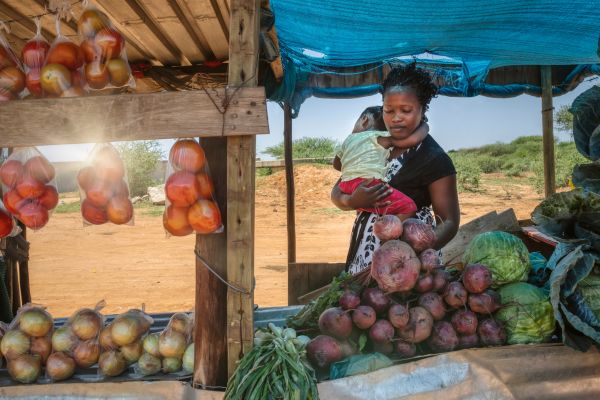Deadline: 30-Jun-23
The International Union for Conservation of Nature (IUCN) has launched the Resilient, Inclusive and Sustainable Environments (RISE) Grants Challenge, a first-of-its-kind grant fund that supports activities designed to address gender-based violence and environmental linkages in environmental and climate-related programmes and generate evidence on promising interventions.
Funded by the United States Agency for International Development (USAID) and managed by IUCN under their Advancing Gender in the Environment (AGENT) partnership, the RISE grants challenge is a direct response to a landmark study on gender-based violence and environment linkages by the International Union for Conservation of Nature (IUCN), which USAID’s Gender Equality and Women’s Empowerment Hub (GenDev) commissioned through the AGENT partnership.
With input from IUCN and diverse partners and peers, USAID designed this first-of-its-kind grants mechanism to fill knowledge, cooperation and investment gaps at the gender-based violence and environment nexus. In complement, IUCN launched the Gender-based Violence and Environment Linkages Center (GBV-ENV Center), which brings together resources and tools, mobilises learning, provides tailored technical support and forges collective action to build knowledge, capacities and improved policies. Since 2022, the RISE grants challenge has been managed and hosted by the IUCN, under the GBV-ENV Center.
Objective
- The overarching purpose of the RISE grants challenge is to fund projects that address gender-based violence that is occurring within and linked to environment and climate-related sectors.
Scope
- In 2023, the RISE grants challenge seeks to fund applications that adapt evidence-based strategies to prevent, mitigate and respond to the risk of gender-based violence related to climate and conservation sectors, with a focus on climate change mitigation, nature-based solutions and natural climate solutions.
- The RISE grants challenge encourages applications that also deliver improved rights-based, gender-responsive, socially inclusive conservation, climate action and sustainable development. In 2023, they are particularly interested in intersectional approaches that include or emphasise vulnerable groups such as Indigenous women, environmental defenders, youth, and women and girls who are underrepresented and marginalised in their communities, among others.
- The RISE grants challenge seeks to build evidence and cross-sector collaborations in three primary ways, investing in:
- new programming that addresses gender-based violence and environment in an integrated manner,
- existing environmental programming that embeds gender-based violence prevention, mitigation and/or response in an integrated manner and
- existing gender-based violence and environment programming that aims to continue, scale up or replicate an intervention.
Thematic Responsiveness
- Implement locally- or community-led or driven approaches, in line with rights-based principles and approaches;
- Integrate promising practices for survivor-centred and trauma-informed approaches;
- Draw on, adapt and/or contribute to proven or promising strategies (i.e., evidence-based strategies) to address gender-based violence in environment-focused sectors in eligible RISE geographies. Strategies can be adapted from other sectors, such as health or education;
- Integrate approaches to engage men and boys on positive masculinities to address gender-based violence and environmental linkages and related harmful social norms;
- Integrate women’s economic empowerment activities that include gender-transformative approaches, such as engaging men and the wider community, as a gender-based violence prevention strategy;
- Coordinate with existing mechanisms to address gender-based violence such as existing referral pathways and service providers.
- Promote institutional learning on promising practices and lessons learned in addressing gender-based violence across environment-focused contexts, toward overall improved implementation and scale-up of rights-based gender-responsive environment approaches and outcomes;
- Foster or leverage favourable enabling conditions to implement interventions to reduce gender-based violence and support survivors, for example through legislative action, infrastructure or institutionalisation, or mobilising political will;
- Contribute to filling knowledge gaps, for example through deepening local and contextual knowledge of gender-based violence and environment linkages; showcasing context-specific promising practices for preventing, mitigating and responding to this issue; and/ or demonstrating how RISE grantees’ interventions and learning will influence national, regional or global policy and programming agendas.
Funding Information
- The RISE grants challenge seeks to fund up to six projects between USD 100,000 – USD 400,000 each, with implementation timelines of 18-24 months.
Eligible Geographies
Projects must be implemented in one or more of the following targeted geographies:
- Central America and the Caribbean
- Eastern Europe and Central Asia
- Eastern and Southern Africa
- Mediterranean
- Oceania
- South America
- South and Southeast Asia
- West and Central Africa
- West Asia
Eligibility Criteria
The RISE grants challenge is open to legally registered local, national, regional, or international organisations, including but not limited to:
- Non-governmental organisations (NGOs);
- Grassroots, local and community-based organisations (CBOs), including women, and youth-led organisations;
- Civil society organisations (CSOs);
- Indigenous Peoples’ Organisations (IPOs);
- Women-owned/women-led enterprises;
- Faith-based organisations (FBOs);
- International non-governmental organisations (INGOs);
- Intergovernmental organisations (IGOs);
- Universities and other academic institutions;
- Research institutes and think tanks;
- Private sector companies (international, regional, national, local) (for-profit organisations must clearly demonstrate that the proposed project pursues strictly non-profit objectives and does not generate any income);
- Consortiums, partnerships and other already existing forms of collaboration;
- Organisations that are members of IUCN and/or others with track record improving environment outcomes; and
- Organisations that have previously applied for and/or received RISE funding (these applicants must specifically articulate how another grant builds on the learnings and results of the first).
Ineligible
- Political parties, groupings, or institutions, or their subsidiaries or affiliates;
- Organisations that advocate, promote, or engage in illegal activities or anti-democratic activities;
- Any entity that has been found to have misused IUCN or USAID funds in the past;
- Applicants whose staff include an individual currently employed by, or closely related (i.e. immediate family) to, an IUCN employee or an employee of one of the IUCN collaborators involved in the management of the RISE program or the AGENT program;
- IUCN Secretariat;
- Any government public entity or organisation; and/or
- Individuals.
For more information, visit IUCN.
